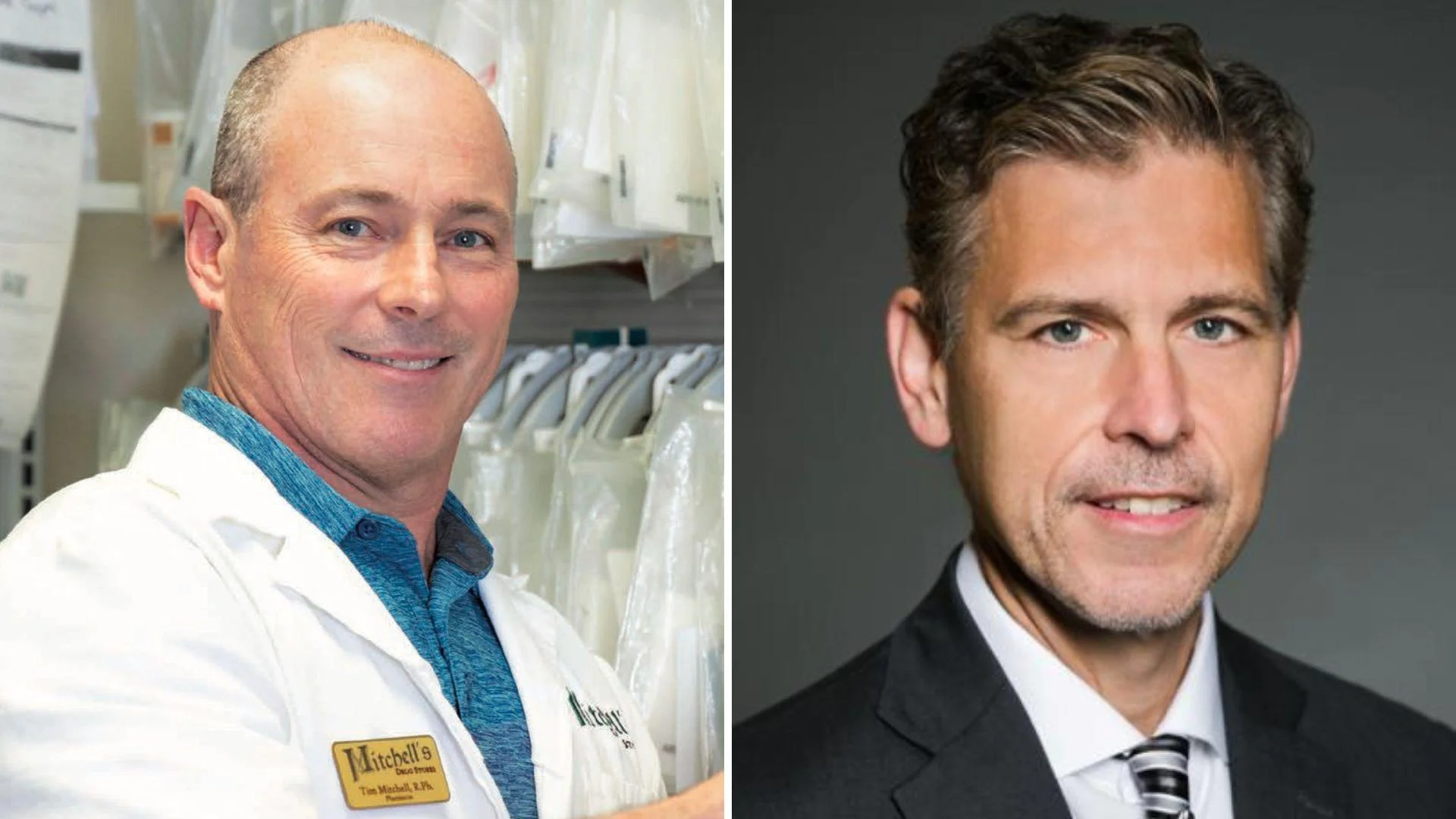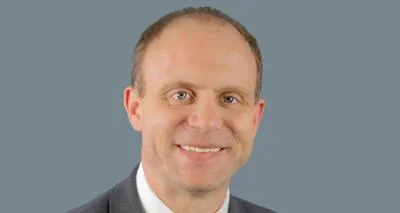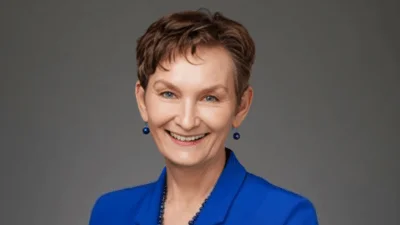Tim Mitchell, owner, Mitchell’s Drug Stores, left, and left, and Douglas Hoey, CEO, National Community Pharmacists Association | NCPA.org
Tim Mitchell, owner, Mitchell’s Drug Stores, left, and left, and Douglas Hoey, CEO, National Community Pharmacists Association | NCPA.org
A Neosho, Mo. pharmacist and drug store owner said he supports the call by the National Community Pharmacists Association (NCPA) for the newly-created Department of Government Efficiency (DOGE) to search for waste and fraud within the pharmacy benefit management (PBM) industry.
“Yes, I think it's very important that we investigate PBMs,” said Tim Mitchell, who opened Mitchell’s Uptown Drug Store in 2003 and expanded to four locations, including Mitchell’s Downtown Pharmacy, Mitchell’s on the Boulevard, and Mitchell’s Long Term Care. “I do think they need to make sure that they look at NCPA's information. They need to listen to community pharmacists.”
“They need to listen to chain pharmacies. Not necessarily vertically integrated, but like Walgreens. Walgreens is crying for help,” said Mitchell. “They need to listen to the FTC about what they found out. They need to look at CMS, the Centers for Medicare and Services because Medicare is getting hosed by PBMs right now, big time.”
A member of NCPA, Mitchell received the 2019 American Pharmacists Association Immunization Champion Award and the 2015 UMKC School of Pharmacy Alumni Achievement Award.
His comments are in response to a December letter sent by NCPA CEO Douglas Hoey to DOGE General Counsel William McGinley.
“We were encouraged to hear that the newly formed Department of Government Efficiency (DOGE) will be looking at ways to eliminate waste and inefficiencies in federal programs,” said Hoey's letter. “We would strongly urge you to start your search with the pharmacy benefit managers (PBMs).”
A PBM is a third-party administrator of prescription drug programs for health insurers, self-insured employers, and government agencies. PBMs negotiate with drug manufacturers to secure discounts and rebates on medications, manage pharmacy networks, and process prescription drug claims. PBMs also provide services such as medication therapy management and mail-order pharmacy services.
On January 20, 2025, President Donald Trump (R) established DOGE through an executive order, appointing Tesla founder Elon Musk as its sole leader after entrepreneur and former presidential candidate Vivek Ramaswamy's resignation. DOGE aims to reduce federal spending by up to $2 trillion, streamline government operations, and consolidate federal agencies from over 400 to fewer than 100.
McGinley was appointed by Trump in December 2024 to be the general counsel of DOGE. McGinley has been a partner at the Holtzman Vogel law firm and also served as White House Cabinet Secretary in Trump’s first term.
The Federal Trade Commission (FTC) released a report earlier this month that said the three largest PBMs have “hiked costs” for a range of prescription medications. The report is the second interim release in a study launched by the FTC in June 2022. It focuses on the role of PBMs in shaping drug pricing and access to prescription medications.
One practice identified in the report is spread pricing, where PBMs charge health plans a higher price for a drug than they reimburse to pharmacies, keeping the difference as profit. This practice can result in increased costs for payers and patients, said the FTC report, while limiting the revenue for pharmacies.
The report also said rebate agreements between PBMs and drug manufacturers incentivize higher list prices for medications.
PBM fees and reimbursement rates, said the report, also threaten the financial stability of small pharmacies, reducing patient access to local providers of essential medications. Patients in these areas often face higher out-of-pocket costs and fewer options for obtaining the medications they need.
The FTC said it will use the report findings to develop policy recommendations and enforcement measures. Public comments on the report are encouraged and will inform the FTC’s ongoing efforts to evaluate the broader impact of PBM practices on drug prices and access.
Trump, during a December 2024 press conference, said PBMs are “middlemen” who contributed to higher drug prices
"The horrible middleman that makes more money, frankly, than the drug companies, and they don't do anything except they're a middleman,” said Trump. “I don't know who these middlemen are, but they are rich."




 Alerts Sign-up
Alerts Sign-up